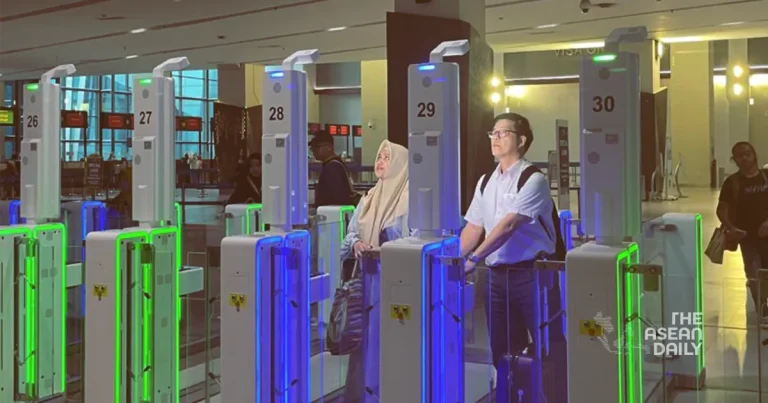26-7-2024 (JAKARTA) In a series of events that have shaken Indonesia’s digital ambitions, recent cyberattacks have exposed critical vulnerabilities in the nation’s burgeoning digital infrastructure. The incidents have not only disrupted essential services but also cast a harsh spotlight on the institutional shortcomings hampering the country’s technological progress.
The most recent blow came on 19 July, when a global tech outage caused chaos at major airports worldwide, including Jakarta’s Soekarno-Hatta International Airport. This disruption, forcing airlines to process check-ins manually and even cancel flights, was particularly galling for Indonesian authorities as it marked the second such incident in a month.
Just weeks earlier, on 20 June, travellers at Indonesia’s busiest airport endured hours-long queues as immigration officers resorted to manual checks following a sudden loss of data. The ripple effects were felt across other major airports in Surabaya and Bali, with dozens of international flights facing delays.
The root cause of these disruptions was soon revealed to be a breach of Indonesia’s national data centre temporary server (PDNS). In a brazen act, a hacker group known as Brain Cipher claimed responsibility, demanding a ransom of $8 million from the Indonesian government. The attack, utilising the notorious LockBit 3.0 ransomware, compromised over 280 government agency systems, affecting everything from national identification numbers to student grant data.
Perhaps most alarming was the revelation that there was no backup for almost all of the compromised data. The potential consequences for Indonesian citizens were averted only when the hacker group unexpectedly released the decryption key for free.
These incidents have raised serious questions about Indonesia’s readiness to realise its digital ambitions, which were set in motion in 2019 when President Joko Widodo signed a decree establishing the Satu Data Indonesia (SDI) or One Data Indonesia policy. The initiative aimed to integrate and standardise data systems across the vast archipelago nation of 280 million people, addressing chronic inefficiencies attributed to disorganised and inaccurate data systems.
Central to this vision was the establishment of a national data centre (PDN) with four centrally-controlled servers. However, in a rush to meet a symbolic launch date, the Ministry of Communications and Informatics (Kominfo) hastily set up a temporary server in Surabaya – the very one compromised in the June attack.
While weak server protection and an embarrassingly simple administrator password appear to be the immediate culprits, the incidents have highlighted deeper institutional issues. The vulnerabilities of a centralised data system have become glaringly apparent, with the entire national data infrastructure susceptible to compromise through a single point of failure.
Critics argue that the solution lies not in technology alone, but in institutional reform. Particular scrutiny has fallen on Kominfo and the National Agency for Cyber and Crypto (BSSN), the bodies responsible for overseeing Indonesia’s digital infrastructure and cybersecurity.
Kominfo, despite its crucial role, has been led by political figures rather than tech professionals for the past decade. This lack of technocratic leadership has been blamed for the ministry’s perceived incompetence in handling digital challenges. Meanwhile, BSSN, established in 2021, has struggled with insufficient resources and unclear authority, leaving it ill-equipped to manage national cybersecurity effectively.
The recent cyberattacks have also exposed a worrying lack of coordination between these key institutions, with each attempting to shift responsibility onto the other in the aftermath of the PDNS breach.
While Indonesia undoubtedly has the potential to acquire cutting-edge cybersecurity systems, the real challenge lies in ensuring its institutions can match the nation’s lofty digital ambitions.




